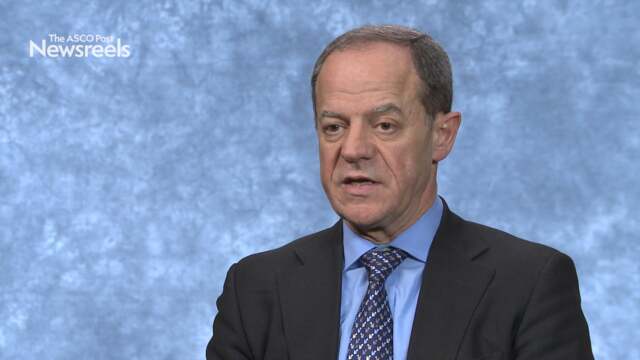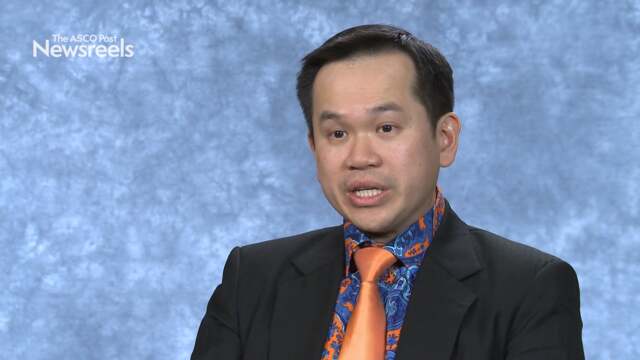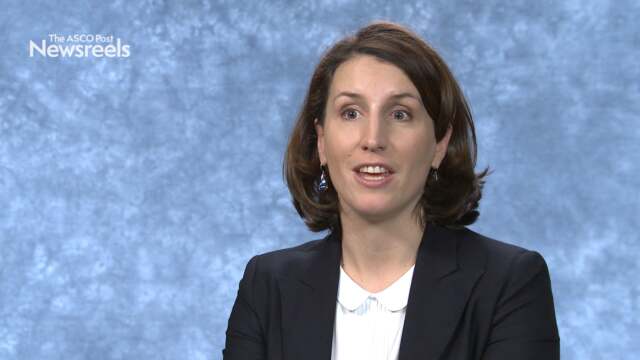Thomas Powles, MD, on Urothelial Carcinoma: Results From the IMvigor211 Trial
2018 Genitourinary Cancers Symposium
Thomas Powles, MD, of Barts Cancer Institute, discusses phase III study findings on atezolizumab vs chemotherapy in platinum-treated locally advanced or metastatic urothelial carcinoma, with an emphasis on immune biomarkers, tumor mutational burden, and clinical outcomes (Abstract 409).
Daniel J. George, MD, of Duke University Medical Center, discusses phase III findings on adjuvant sunitinib in patients with high-risk renal cell carcinoma, in an exploratory pharmacogenomic analysis (Abstract 576).
Joaquim Bellmunt, MD, PhD, of the Dana-Farber Cancer Institute, discusses phase III 2-year follow-up findings on pembrolizumab vs investigator’s choice (paclitaxel, docetaxel, or vinflunine) in recurrent, advanced urothelial cancer (Abstract 410).
Paul L. Nguyen, MD, of the Dana-Farber Cancer Institute, summarizes a session he chaired on prostate cancer, which included discussion of daily vs weekly image-guided radiotherapy; a biomarker to predict biochemical failure and metastasis; a comparison of abiraterone or enzalutamide activity; and the impact of 18F-fluciclovine PET/CT on clinical management choices for men with biochemically recurrent disease (Abstracts 4, 5, 164, 165).
Laurence Albiges, MD, PhD, of the Gustave Roussy Cancer Centre, discusses study findings on the safety and efficacy of nivolumab in metastatic renal cell carcinoma (Abstract 577).
Gregory R. Pond, PhD, of McMaster University, discusses a new six-factor prognostic model for patients with advanced urothelial carcinoma receiving post platinum atezolizumab (Abstract 413).





